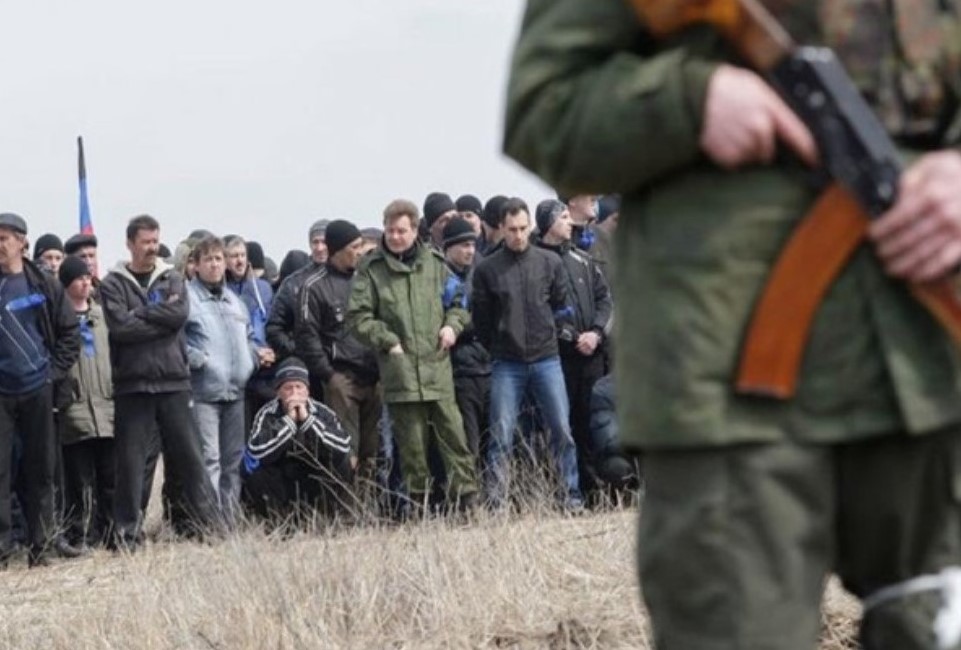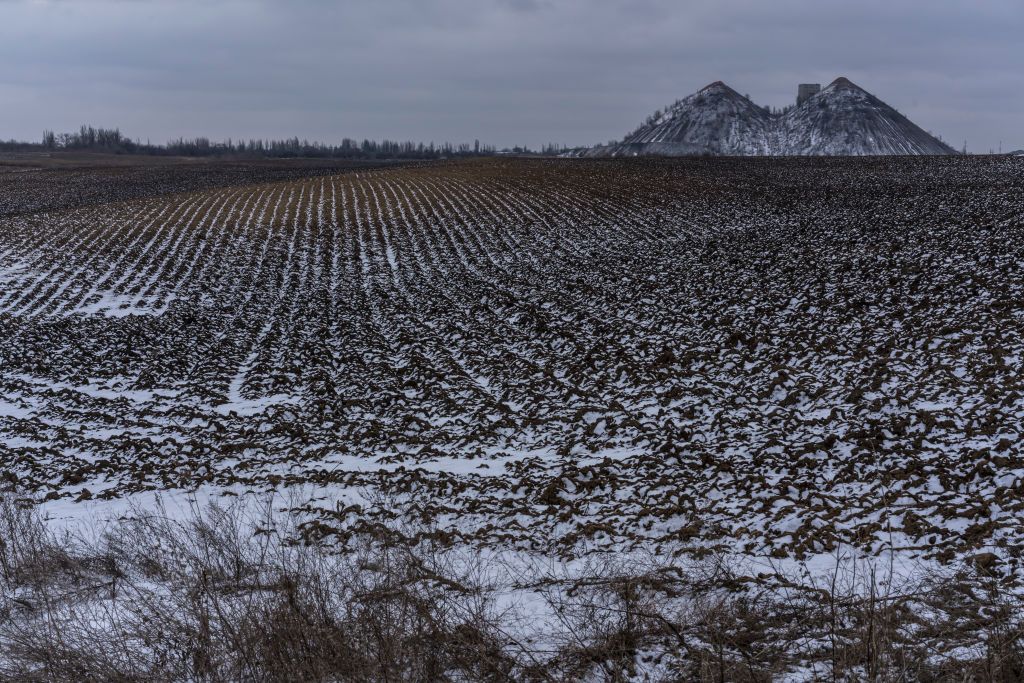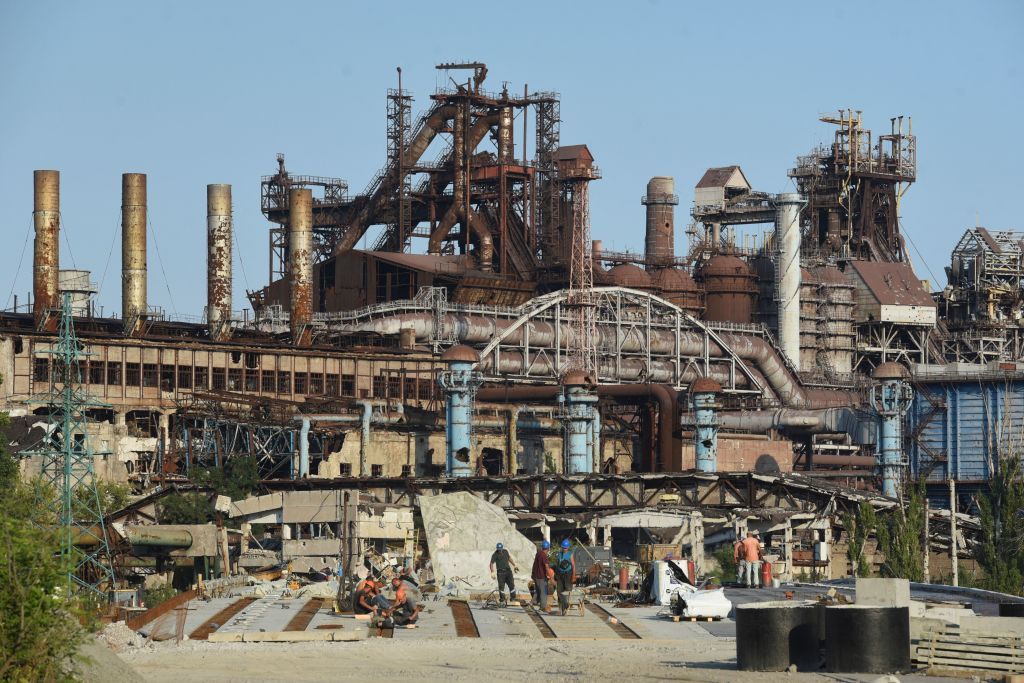Mariupol teenagers in danger of forced mobilization to fight Russia’s war against Ukraine

As feared, the Russian invaders appear intent on forcibly mobilizing Ukrainians on occupied territory, with teenagers their latest target. The Mariupol City Council has posted an ‘instruction’ from a so-called ‘Donetsk people’s republic district educational department’ to place students born in 2007 on the military register, with all such 17-year-olds to be forced, from January 2024, to register at the Russian occupation military recruitment office. These young lads will be in danger of open or covert mobilization into Russia’s army. It is a war crime to force people on occupied territory to serve in the invading state’s army, yet Russia began conscripting Ukrainians in occupied Crimea soon after its invasion in 2014. The situation became especially critical in February 2022, with Ukrainians sent by the invading state to fight fellow Ukrainians on Ukrainian territory.
The current regime in Russia is seeking ways of increasing the number of fighters for its war of aggression against Ukraine. Measures taken in 2023 removed the requirement that young men physically received call-up papers. Electronic notification is now deemed sufficient, whether or not the person appears at the military recruitment office. He can then be banned from leaving the country and will likely face other measures when found. On 21 December 2023, Russian leader Vladimir Putin issued instructions for the autumn call up “of Russians” in 2024 to be carried out with the use of a single register, including all those who had received such electronic notification.
Mobilization in Russia itself is hugely unpopular and, with Putin currently intent on faking his supposed ‘re-election’, the Kremlin will be seeking all possible ways of finding men to find its war. One such measure, seen in occupied Donbas in the first months of Russia’s full-scale invasion of Ukraine is to forcibly mobilize men from occupied territory. In the Russian proxy ‘Donetsk and Luhansk people’s republics’ [occupied Donbas], men were seized at their working place, on the street or at home, with all sent to fight, regardless of their state of health. All of this was much more convenient for Moscow, since there were no official statistics, no access to international observers or media. The men were, essentially, used as cannon fodder, being often sent, without training or appropriate gear, to the worst parts of the frontline.
In an interview to Donbas Realities in July 2023, Andriy Cherniak from Ukraine’s Military Intelligence said that 55-60 thousand men had been forcibly mobilized from occupied Ukrainian territory. The figure probably did not include Ukrainians from occupied Crimea who were either illegally conscripted or included in Russia’s supposedly partial mobilization announced by Putin on 21 September 2022.
It was feared from the outset that Russia would forcibly mobilize men from areas that fell under its occupation after 24 February 2022. Such measures have been slower, mainly because Russia has clearly needed to use coercion to foist its citizenship on Ukrainians in occupied parts of Kherson and Zaporizhzhia oblasts. The forms of coercion have become very aggressive, with people refused medical treatment, employment and threatened with having their children taken away if they do not agree to receive Russian passports. Once men of conscription age have taken Russian citizenship, they are in immediate danger of being forced to fight. It is now clear that the aggressor state is trying to gain control of young lads who will soon turn 18.
On 24 September 2023, Ukraine’s National Resistance Centre reported that the occupation regime had created so-called ‘federal commissariats’ in occupied parts of Zaporizhzhia and Kherson oblasts in order to form a register of all those Ukrainians on occupied territory whom Russia claims are liable to call-up.
Officially, conscripts are not sent to fight, however it is clear even in Russia that the situation is similar to that in 2014, with young conscripts being placed under enormous pressure to sign contracts, agreeing to fight. In occupied parts of Ukraine, there are even fewer restraints on Russia’s lawlessness and very active terror against the population.
Russia’s use of conscription, open or covert forms of mobilization, and its aggressive militarization, especially among children, are all in unequivocal violation of the Fourth Geneva Convention. Article 51 of this document, which is binding upon the Russian Federation, states that “the Occupying Power may not compel protected persons to serve in its armed or auxiliary forces. No pressure or propaganda which aims at securing voluntary enlistment is permitted”.
Human Rights Watch recently issued a statement stressing that Russia is committing a war crime by compelling Ukrainian civilians to serve in the Russian armed forces. They drew attention also to Russia’s “practice of pressuring Ukrainian civilians in detention, who have nowhere to hide or flee, to join the Russian forces.” They had spoken with three men held in detention. One of them described the methods of ‘persuasion’ or coercion used. One man had repeatedly refused, and had been “placed in a damp, cold, and overcrowded cell with 12 other people, most of whom had active tuberculosis. He and other detainees were deprived of water for extended periods and frequently given rotten or mouldy food. “When we complain, they respond: ‘if you don’t like the conditions here, going to war is your way out,’”
Another detainee told HRW that, “to his knowledge, hundreds of detainees from the facility he was held at had been sent to areas of active fighting and most did not survive.”
by Elsa Court andThe Kyiv Independent news desk

A Russian strike on two mines in Toretsk in Donetsk Oblast killed three civilians and wounded five others, Interior Minister Ihor Klymenko said on Dec. 21.
The Interior Ministry later reported an update that six people had been injured.
Toretsk, an industrial town situated less than 10 kilometers from the front line, is frequently a target of Russian attacks.
At one mine, two aerial bombs killed one person and injured two others, Klymenko said. There were 32 miners underground who have since been brought to the surface.
Two more aerial bombs hit another mine, killing two people and injuring three others. "Administrative buildings and equipment were damaged," according to Klymenko.
The Donetsk Regional Prosecutor's Office reported that it had started a pre-trial investigation into the war crime. Those killed were men aged 41, 42, and 45 years old.
A Russian air strike on Toretsk on Nov. 28 injured four women working at a workshop and damaged industrial buildings.As sanctions bite, Russia eyes Ukraine’s mineral resources to fund its invasion

No comments:
Post a Comment